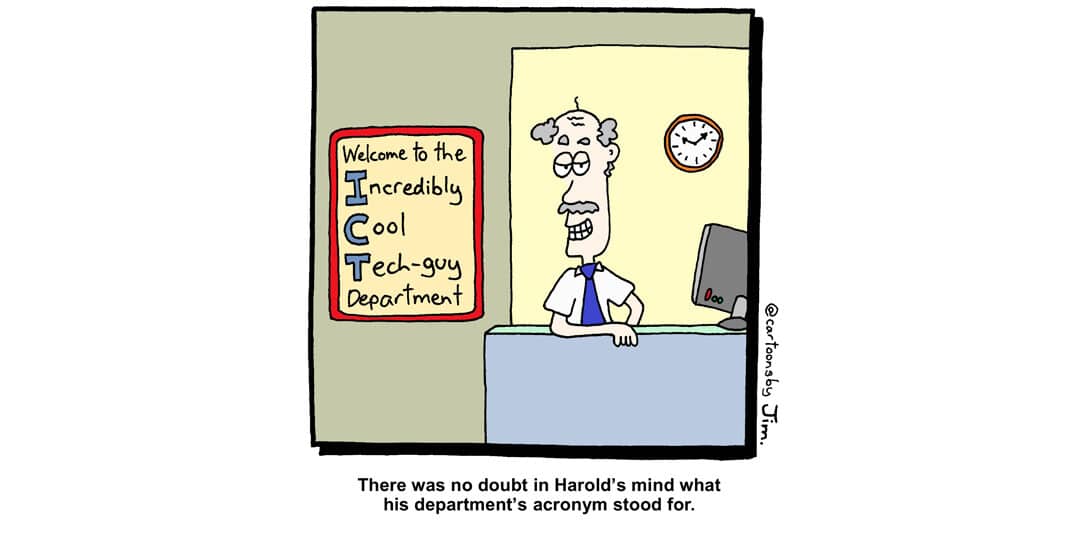
by DavidSpratt | Feb 8, 2019 | ICT
The below article was published recently in IT Brief New Zealand magazine.
The -aaS consumption model is nothing new when it comes down to brass tacks – it’s exactly how we’ve been consuming electricity ever since Edison and Tesla were squabbling.
Over the last 130 or so years, electricity consumption has risen and with it, the cost.
This is why Total Utilities stepped in to help businesses in New Zealand ensure that their power costs were being thoughtfully managed through analysis of quantitative and qualitative data.
Now, the team at Total Utilities have brought their years of experience and the array of tools at their disposal to help enterprises transition to the cloud in the most cost-effective and outcome-focused way possible.
Total Utilities strategy and transformation director David Spratt explained that as a company that specialises in the analysis of data, migration to the cloud is a no-brainer.
“The intellectual battle over the cloud is done,” Spratt says.
“if you haven’t heard about the multitude of advantages that public cloud can bring to any organisation, then you haven’t been listening. To be competitive from our corner of the world, you need to be using world-class technology and today, that means public cloud.”
Every day, more enterprises move onto the cloud. Every day, another startup is born there, ready to displace their predecessors. And every day, you have someone else tell you that if you don’t move now, you’re done for.
Total Utilities is not interested in this kind of manic hyperbole. In fact, the team’s knowledge and expertise in the cloud was inspired not just by their love of the tech, but more importantly by their passion for saving money for their clients.
“As a completely vendor-agnostic consultancy, we aren’t trying to convince anyone to spend more or upsell to products they don’t need,” Spratt explains.
“If your company has brand new servers that are fully functional and ticking along happily, you probably aren’t interested in migrating everything right now. We understand that and want to guide both IT specialists and C-level executives to make the right decisions about what should be moved, how it should be moved, and when to move it.”
Total Utilities helps organisations bridge the communication gap between IT and the C-suite, speaking both languages, and suggesting clear, evidence-based options that are all about making life easy for the techies, and making money for the execs.
This is not some upstart company aiming to build their experience – for the last five years, they have worked with New Zealand’s major kiwifruit exporter and agricultural giant Zespri, providing financial insights and ongoing evidence of the value that migrating to Azure has brought.
“We said to Zespri, ‘Are you really in the business of owning and operating IT?’ And of course they’re not,” Spratt elaborates.
“But certain key services they have to deliver. So how do you get out of the business of owning and operating tin boxes that go ping, and into the business of providing all the services that give a business strategic advantages?”
Total Utilities performed assessments in every area to see what the cloud could offer. They looked at the obvious benefits like the ability to copy/paste their systems for deployment in any country, simplified disaster recovery and backup, and the ability to scale up or down based on crop yield.
Scalability ended up being a key driver for Zespri as this transformation occurred at the same time as the much-publicised Psa disease that threatened to wipe out their gold kiwifruit stock.
Zespri wasn’t sure if it would end up with shipping numbers dropping from 80 million to 40 million, or if a new strain of fruit would take successfully and end up yielding 140 million. Total Utilities showed them how being in the cloud would mean they were ready for any eventuality.
But then they even dug deeper, looking at the cost per square metre of housing private servers, power costs, and the depreciation of hardware over time.
Today, Zespri still sits on Azure and continues to work with Total Utilities to ensure that it is always in the best position to achieve its goals as one of New Zealand’s biggest organisations.
Now, Total Utilities wants to help your organisation be as profitable and streamlined as it can possibly be – get in touch today to find out how.

by DavidSpratt | Dec 14, 2018 | ICT
For the third year in a row BusinessPlus has allowed me the opportunity to take the mickey out of a select group of businesses and individuals in this satirical Christmas “awards” wrap-up.
That’s a big call by the editor when my track record for saying the wrong thing at exactly the wrong time precedes me. If you are offended, I am in the phone book and on social media. If you have a laugh, then send the kudos to my brave editor.
Taking the Eye off the Prize Award – Auckland Council
When a huge storm with 200kph-plus winds blew out the candles on 150,000 Auckland households last April, we all sympathised with the hardworking Vector crews and management as they scrambled to ensure the hippies out West didn’t lose their indoor light garden, marijuana crops.
Later it turned out that a big part of the problem was damage caused by Auckland Council-controlled trees crashing down under the weight of reduced maintenance programmes and inadequate planning rules.
More focus on the basics might have left us not having to cook defrosted freezer contents over gas barbecues for a week
Social Media Brand Genius Award – Clarke Gayford
Clarke, could you be any more savvy than to be photographed standing, dripping sweat, in a skin-tight wetsuit while gently tucking your infant child into your rippling biceps?
Creating a personal social media brand bigger than a Kardashian’s booty while retaining the job title of “stay-at-home dad”, you even found the time to construct a patio deck for your house while in the midst of new parenthood.
In a blow to husbands and partners across the nation, your smiling perfection has exposed our hopeless parenting inadequacies for all to see. To make matters worse for me the remains of my broken self-esteem were wiped away when my partner hissed those fateful words, “Why can’t you be more like him?”
Curdled Milk Award – Fonterra
Take billions of dollars’ worth of farmers’ hard-won milk products, package them up for international consumption, add a highly paid exec team and shiny new Auckland Viaduct offices, then deliver a loss of $140 million.
This is usually a recipe for pitchforks and flaming torches. It’s lucky Fonterra’s shareholders couldn’t afford the newly excised fuel to get their tractors to the ritual burning. Hopefully 2019 will see a return to form for what is usually the shining star of our agricultural economy.
Accident Waiting to Happen Award – Steel and Tube
Steel & Tube has been fined a record $1.885 million for breaching the Fair Trading Act by making false and misleading representations about its steel mesh products that are used in construction to provide strength and stability in the event of an earthquake.
Getting the product testing wrong had the potential to wreak havoc on our roads, but for the timely intervention of the Commerce Commission and the prompt admission of error by the company.
The irony was not lost on the writer that recent company share buyers have included the New Zealand Government through the Accident Compensation Corporation.
If Fletcher Building’s takeover attempt of Steel and Tube proves a success, expect far greater attention to be paid to test regimes and quality control than proved to be the case here.
Unsung Hero Award – Rod Drury, founder of Xero
Founder and still 13 per cent shareholder of Xero, Rod Drury, has proved that Kiwi companies can fly in the highly competitive international marketplace for accounting software.
Rod stepped down as CEO this year in further proof that emotionally secure, servant leaders can make way for innovation and change without ceasing to be brilliant entrepreneurs.
Xero has surpassed one million subscribers globally and heads a long list of New Zealand tech enterprises flexing their muscles internationally. Xero ships no physical product as it spreads its wings across the globe. Food for thought in a world looking for clean, green, sustainable solutions from countries such as New Zealand.
That’s it for 2018. Have a safe and restful break and a wonderful Christmas. See you in the New Year.
David Spratt is a director of Total Utilities. Email [email protected]

by DavidSpratt | Jul 10, 2018 | ICT
Data protection is the process of safeguarding important information from corruption, compromise or loss.
Many of us will have watched with some concern the ongoing reports of hacking, ransomware (where a hacker locks or encrypts your company data and demands a ransom before releasing it) and data theft by outside agencies.
IT Security Threats Pose New Risks for Owners and Directors
As owners and Directors of businesses in this country, we cannot ignore the real risks presented to our companies by theft or destruction of company data. Stricter laws governing Director’s responsibility make risk management and mitigation very personal.
Henri Elliot, Founder and CEO of Board Dynamics commented to me recently, “It is essential Directors take a strong position on all forms of risk. Risk should be on the Board’s agenda each month and should be appropriately categorised. For example – is a staff member taking a list of clients a company policy issue? An HR issue? An IT security issue? In truth, it is all of the above and Directors need to take a holistic approach.”
Security Risks Are Mainly Internal
The scary thing when we consider the risks around IT is that it is not the sneaky Russians or the depraved teenage geeks who represent the real threat to most businesses. In fact, it’s often quiet Jane from Finance or good old reliable Mac from Sales who represent the real and present danger.
If you think I am being a bit dramatic (and my wife would agree with you) think again. Here are a few things that should give you food for thought.
Nearly two-thirds of employees surveyed, who leave an organisation voluntarily or involuntarily, say they take sensitive data with them.
That is a real wake-up call when you consider that your staff will almost inevitably have access to sales and customer records, design secrets and new product plans.
Nine out of ten Information Technology (IT) staff surveyed indicated that if they lost their jobs whether through redundancy or by firing would take sensitive company data with them.
Techies are extra smart, often socially inept and prone to impulsive behaviour when stressed. Just because Jason the geek is a bit dishevelled in the morning doesn’t mean he is not capable of revenge served cold.
So how does Jane, Mac or Jason walk out the door with your most valuable secrets? In truth, they probably don’t. Your worst enemy is email. Over a quarter of data, thefts have been as simple as attaching a file to an email and sending it home or to a friend.
Next on the IT security threat list for most small to medium businesses is that convenient friend, the USB stick. In many cases, these data downloads start quite innocently with your trusted person downloading files, so they can work from home. It’s only when they are preparing to leave that the true value of the customer list they downloaded becomes clear.
I can dwell on ways you can lose your company data, but in truth, this only serves to make you overly fearful. Instead, let’s look at a couple of the signals that your data may be at risk.
Signals Your Data Might Be at Risk
Negative Work Events
Laying off or firing staff, whatever the reason should be a signal that your data is at risk. A huge proportion of internal IT security failures come from a desire for revenge. If you are planning to terminate a staff member it is important that you monitor that person’s behaviour. A surge in large data files being downloaded or emails to an unusual address should be a huge red flag.
Complacency
In many cases, data security failures are just a case of staff members, managers, or owners who just don’t get it. Data is valuable only if you see it that way.
The signals of complacency are often clear. You should be troubled by people violating simple IT security policies like keeping passwords protected. It is the company who will pay and the staff who end up with their jobs at risk if you ignore the knowingly irresponsible behaviour.
Next month I will run through the key things you can do to reduce the risk of insider security threats without treating your much-loved people as if they are criminals.

by DavidSpratt | Dec 18, 2017 | ICT
Last year I compiled a satirical list of ICT companies that won or lost the battle for the affection of us ICT brokers for businesses. The response was a mixture of simpering sweetness and hate mail (you know who you are).
Nevertheless, I’m doing it again this year, in this article.
To my colleagues who I offend in the next few hundred words, I apologise for my ill humour, even if you have been the authors of your own destruction.
ICT Winners and Losers (a satire)
The Coolest Kids in Town Award: Kordia
Who would have thought that Kordia — formerly government-owned BCL with its unwashed hoard of nerds in walk shorts, sandals, long socks and straggly beards — would have transformed itself over a single decade into the ultra-cool company it is now?
Delivering superb, Ultra-Fast Broadband innovation at impressive price/performance levels and showing market leadership in emerging technologies such as the Internet of Things-enabler Sigfox, it seems maybe geeks can fly after all.
The How Many Fingers am I Holding Up? Award: 2 Degrees
It seems only a year or two ago that 2Degrees offered great coverage to the major cities and a big finger to the provinces.
Millions of dollars and a heck of a lot of hard work later, they now offer something resembling decent coverage at a very competitive price. A player to watch in 2018.
The Spurned Lover Award: Spark Marketing
Please, please, please Spark will you stop telling us how crap you were and how things will get better now that you have sacked half your staff. When all you have left are excuses for your bad behaviour and pleas for forgiveness, maybe it’s time to make a break with the past and move on.
In truth you are damn good at the things that matter and most of us love buying off Kiwi companies (see Kordia and Datacom).
The People’s Choice Award: Datacom
For those of you who have nothing but bad things to say about these guys I have two questions: “Where do the vast majority of the most respected and admired ex- Gen-i and Computerland people work now?” and, “Which other Kiwi success story has grown at over 11 per cent year-on-year for over a decade, while competing head to head against some of the world’s smartest and most successful multi-nationals?”
Datacom has proved, to the tune of $1.2 billion a year in revenues, that people buy off people, even if most of them have grey hair poking out their noses and ears.
The Comeback Kid Award: Samsung Galaxy S8
The best thing since the Nokia flip phone. Great camera, features and battery life. Pity people still think twice before putting it in their pocket.
The Lone Ranger Award: People still investing in DIY IT infrastructure
The No 8 wire mentality that you were so proud of in the 90s is now just a sign of your desire to control everything at the expense of business flexibility.
We know you want to prove that you are more intelligent than everyone else, but have you noticed that the guy who pays your wages and conducts your annual salary review has stopped putting you in front of the business and has informally renamed your section “The Department of No”?
That roaring sound is the jet engine that is public cloud departing with your career prospects.
The Hottie of the Year Award: Samsung Note 7
I was so proud when I took you out of the box and stroked your luscious lines. The screen definition, the camera, the selection of cool software: you made me truly happy for a while.
Then there was the smoke, the heat, the burning sensation in my pocket…has anyone seen the fire extinguisher? Oh, the humanity!
Merry Christmas readers. Talk in the New Year.
David Spratt is a director of Total Utilities. Email [email protected]

by DavidSpratt | Dec 13, 2016 | ICT
After a busy year trying to make sense of the changing ICT landscape I’m winding down for Christmas by attending as many customer and supplier events as possible. The prospect of free wine and food, stimulating conversations and standard speeches by sales managers delivers a mix of pleasure and pain.
I’ve also delighted in compiling my 2016 awards list of companies and individuals that have taken on the IT challenge and made a difference, one way or another.
The IT challenge awards go to:
(more…)




